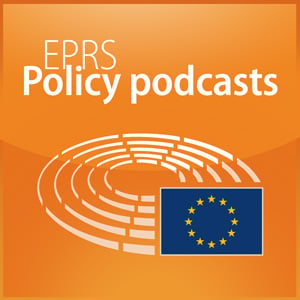Violence against women active in politics in the EU: A serious obstacle to political participation
European Parliament - EPRS Policy podcasts
European Parliament Webmaster
4.8 • 13 Ratings
🗓️ 19 April 2024
⏱️ 6 minutes
🧾️ Download transcript
Summary
- Original publication on the EP Think Tank website
- Subscription to our RSS feed in case your have your own RSS reader
- Podcast available on Deezer, iTunes, TuneIn, Stitcher, YouTube
Source: © European Union - EP
Transcript
Click on a timestamp to play from that location
| 0:00.0 | Welcome to the European Parliamentary Research Service podcasts. |
| 0:05.2 | Politics is still a largely male-dominated arena. The reasons behind this are complex, but one stands out. |
| 0:12.2 | Violence against female politicians is a seriously discouraging factor. Let's dig into this and see what the EU is doing about it. Stay with us. |
| 0:21.6 | Anna Lind, Isabel Kurasco, Joe Cox. |
| 0:26.6 | These female politicians were murdered while doing their jobs in EU countries. |
| 0:31.6 | And while extreme forms of violence against politicians, male or female, are very rare in the EU compared to other parts |
| 0:38.6 | of the world. There is an underlying truth that needs to be dealt with. Female politicians |
| 0:43.6 | are exposed to two severe and intersecting forms of violence, political violence, but also |
| 0:49.5 | gender-based violence. Now, while the increasing polarization of liberal societies has been accompanied |
| 0:55.6 | by rising violence against politicians, this is only half the story. When political violence |
| 1:01.8 | targets women because they are women, when it takes sexist and sexualized forms, and when |
| 1:07.0 | it seeks to discourage women from getting involved in politics, there is a clear gender |
| 1:11.4 | dimension, which means it needs to be understood and addressed through a gender lens. |
| 1:16.8 | It can take many different forms, from physical attacks to psychological and symbolic abuse, |
| 1:22.8 | including sexual and sexist comments, online hate speech and sexual harassment. But the impacts are |
| 1:29.1 | always serious. All these forms of violence discourage women from participating in politics, |
| 1:34.7 | which in turn perpetuates the current gender imbalance and under-representation of women |
| 1:40.2 | at all levels of political decision-making, which is a serious problem for any democracy |
| 1:45.5 | that aspires to be inclusive. Now, you must be wondering how big is the problem? Well, according to a study |
| 1:52.5 | conducted for the Council of Europe in 2018, 85% of female parliamentarians interviewed in 45 European |
| 2:00.3 | countries admitted to having suffered |
| 2:02.6 | psychological violence in the course of their term of office, and 47% had received threats |
... |
Transcript will be available on the free plan in -347 days. Upgrade to see the full transcript now.
Disclaimer: The podcast and artwork embedded on this page are from European Parliament Webmaster, and are the property of its owner and not affiliated with or endorsed by Tapesearch.
Generated transcripts are the property of European Parliament Webmaster and are distributed freely under the Fair Use doctrine. Transcripts generated by Tapesearch are not guaranteed to be accurate.
Copyright © Tapesearch 2025.

